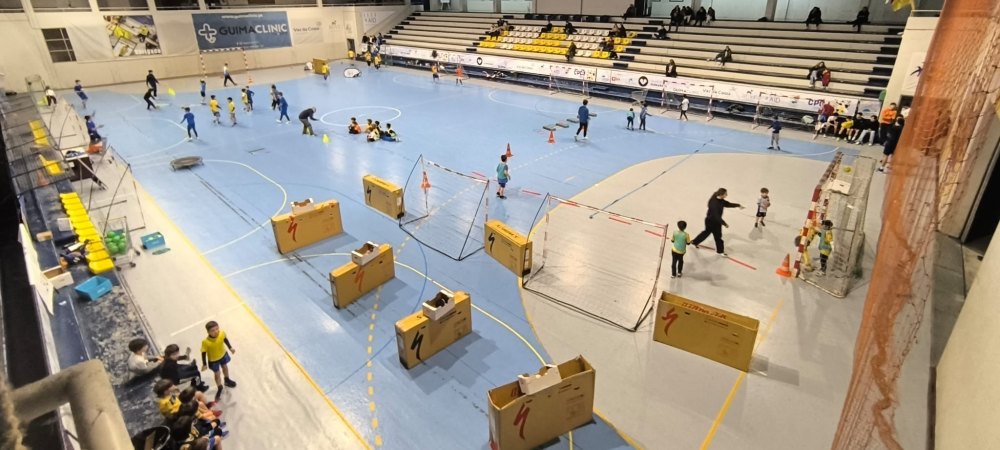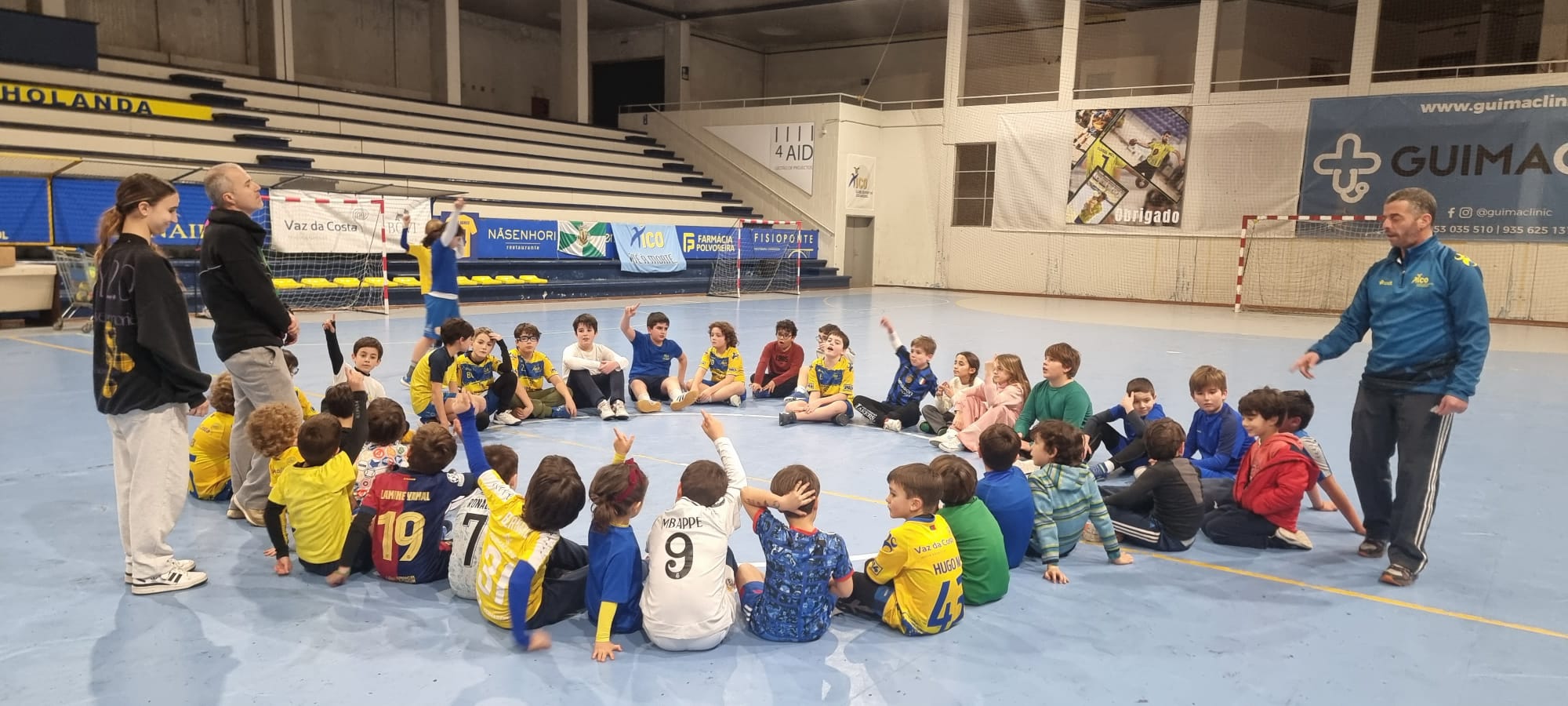

The question of how to include displaced people in cities and municipalities has become increasingly urgent, especially with the growing number of refugees and migrants arriving in Europe. Based on the experience of Clube Desportivo Xico Andebol and the Municipality of Guimarães – particularly through CLAIM (Local Centre for the Integration of Migrants) and the “Guimarães Acolhe” programme – sport has proven to be a powerful tool for promoting inclusion and combating discrimination.
Building Bridges Through Sport
At Xico Andebol, we believe that sport can be an entry point to a sense of belonging. Through structured programmes such as our collaboration with CLAIM, we have welcomed displaced youth into our teams, offering not only access to training and competition, but also to a social network and support system. The club functions as a micro-community where differences in language, culture, or legal status are overcome through shared goals and collective identity.
The key to success lies in coordination with local and municipal services. The “Guimarães Acolhe” initiative has created referral channels through which social workers, schools, and integration services identify young refugees or migrants who can benefit from joining sports programmes. Once integrated into the club, these young people receive not only coaching but also academic support, psychological counselling, and help with documentation. This is made possible through strong partnerships with organisations such as ASSP Guimarães (offering tutoring and psychotherapy), CPCJ (for the protection of children and youth), and the Social Action Department of the Municipality of Guimarães.
In addition, our strategy is reinforced through synergies with national bodies such as IPDJ (Portuguese Institute of Sport and Youth) and participation in competitive funding programmes focused on childhood and social impact. A notable example is our involvement in the “Infância 2024” social prize, promoted by BPI and the “la Caixa” Foundation, which supports initiatives dedicated to children at risk.
Our connection to the school system is also vital. We maintain an umbilical relationship with local school clusters (agrupamentos de escolas), which ensures close monitoring of each child’s academic progress and enables us to intervene early when needed. These partnerships form a comprehensive support network that extends far beyond sport, creating a safety net for displaced children and youth.
Combating Hate Speech and Discrimination
Sport also plays a key role in addressing hate speech and discrimination. Within our training sessions and club activities, we implement educational components that address these issues directly. Our Department of Ethics and Inclusion, led by a young athlete trained under the SPIN Youth (Erasmus+) programme, facilitates peer-led workshops and campaigns focusing on tolerance, anti-racism, and the promotion of equality.
These activities involve not only the athletes, but also their families, coaches, and schoolteachers, making the club a space for broader community learning. The visible participation of displaced athletes in competitions and everyday club life helps normalize diversity and challenge negative stereotypes.
From Local Action to Global Impact
The experience of Guimarães and Xico Andebol demonstrates that inclusion is most effective when municipalities and grassroots sports organisations work closely together. Our model is replicable: identify local partners, build multidisciplinary support teams, and place sport at the centre of social engagement.
When inclusive and intentional, sport becomes more than a game. It is a platform for empowerment, a tool for dialogue, and a field where everyone belongs.
Mauro Fernandes
President
———————————————————————————————————————–
Xico Andebol is a member of the Sport Inclusion Network and participates in the SPIN Youth project

————————————————–
SPIN Youth Project manager: Stefan Belabed
E-mail: belabed@vidc.org
Phone: +43-1-713 35 94 – 94